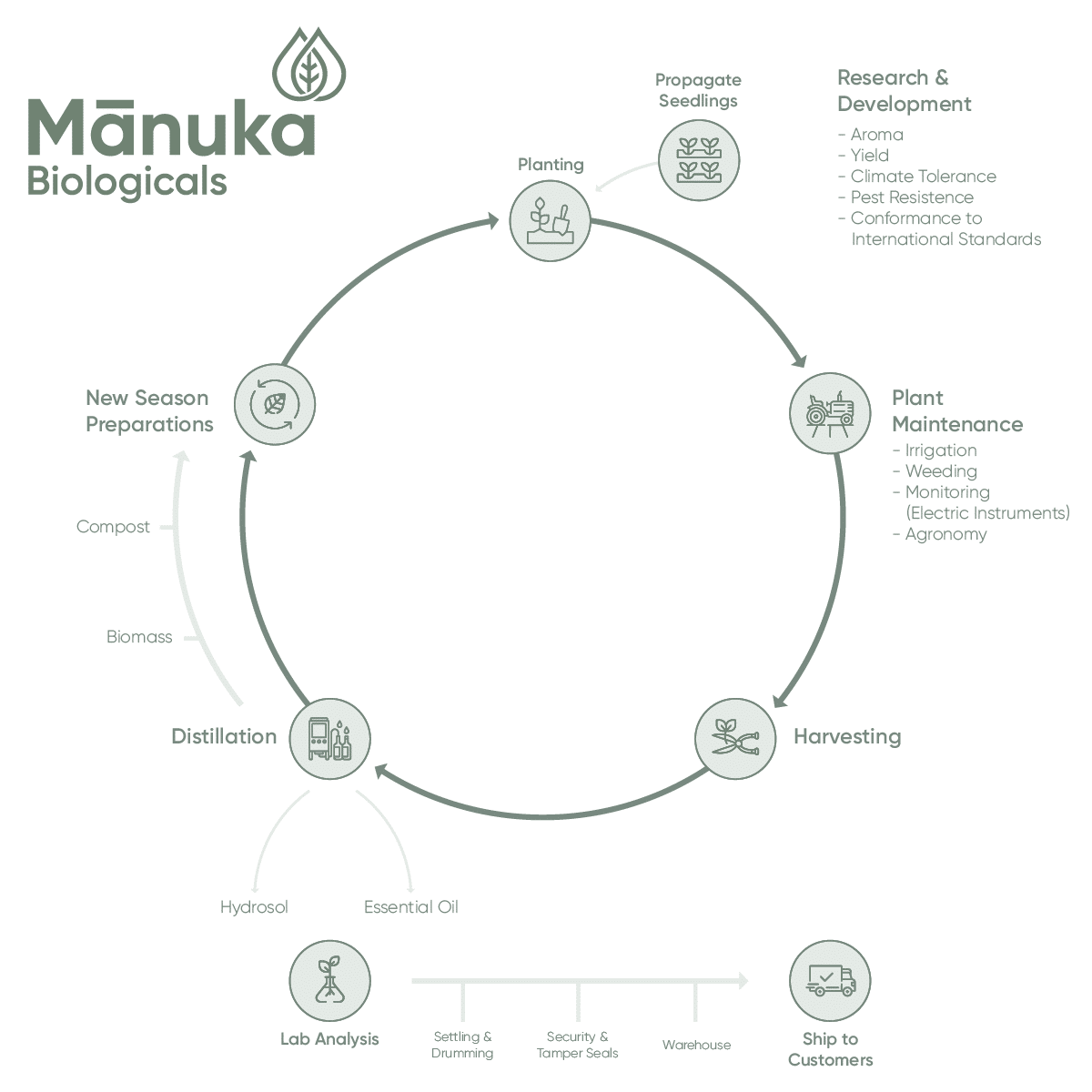
SUSTAINABILITY
How to Create Sustainable Skincare
Manuka Biologicals – 4 minutes read
Already a 500 billion (US) dollar industry, the skincare industry is predicted to continue growing year on year. It uses huge amounts of natural resources – yet consumers are increasingly driven by sustainability when making purchases. A 2023 NielsenIQ survey found that 62% of consumers consider sustainability of crucial importance. This alone is a hopeful sign – as consumers are the driving force behind industry trends and, so far, sustainability advocates are making significant waves in the skincare industry. Unfortunately, the “sustainable skincare market” is rife with greenwashing, making it difficult for well-meaning customers to know how to genuinely build
In this article, we cover sustainable skincare packaging options, ethical ingredient sourcing and how to create a sustainable skincare brand
What does sustainability in skincare industry mean?
Sustainability within the skincare and beauty industry means different things to different people. Ultimately, it comes down to what the majority of consumers care about. A recent survey conducted by NIQ found that consumers have a wide range of definitions for sustainability:
- 61% think sustainability means “better for the planet”
- 57% define it as protecting natural resources
- 54% believe it correlates to reducing pollution
- 45% say it equals cutting emissions
- 43% relate it to protecting wildlife
- 33% think it should include better conditions for workers
- 26% say it ties in with giving back to society
- 15% believe it involves giving back to minorities
Beyond this, sustainable skincare consumers are seeking out products that avoid harmful ingredients, are cruelty-free, use compostable packaging and are plastic-free.
So, which definition should the skincare industry be paying attention to? Ideally…all of them. Any brand wanting to do well by people and the planet should consider each of these things. And, yes, many claim to – but, in reality, the industry still has a long way to go. Many brands have jumped on the “clean, green beauty” wagon, but too many of them lack the transparency to support these claims. That’s really where the key sustainability issues within the skincare industry stem from – a lack of transparency and independent verification. But new research suggests that, thanks to discerning customers, these are the brands that are missing out.
Research led by Forbes has found that 9 out of 10 shoppers consider sustainability while shopping for beauty products – meaning that environmentally-driven brands actually have an edge in the beauty market. Studies have shown that companies who embrace sustainability claim to outperform their competitors in terms of “brand reputation, customer satisfaction and savings due to resource efficiency and decrease of waste, and a competitive advantage in the long-term”. This goes to show just how much of an impact consumers, like you, can have on the industry.
When creating sustainable skincare brands, one of the easiest ways to ensure that your product will comply with sustainability goals is by checking for certifications from your ingredient suppliers and manufacturers.
- B Corp certification
- Ecocert/ COSMOS
- FSC certification (certifications that aim to protect forests through ethical supply chains)
- Climate Neutral certification (only companies that pass an independent climate impact test can be awarded this certification)
How can we make eco-friendly beauty products?
Through our genetic development program, we produce new seeds for annual replanting programs – helping to support local biodiversity on an ongoing basis. We’re committed to sustainably sourcing our mānuka oil continuously and, as part of this effort, have planted well over five million mānuka trees. We’re also dedicated to doing our part in the community by supporting local charities – so far, we’ve donated over 4000 of our products to New Zealand charities.
Of course, as we’ve been saying throughout this article, we don’t want you to simply take our word for it. Our mānuka oil is sustainably sourced in New Zealand by our parent company Manuka Bioscience, which is a certified B Corp company. This means B Lab has recognised that we meet their independent standards of social and environmental performance, accountability and transparency.
Click HERE to learn more about Manuka Bioscience as a certified B Corp Company.
Click HERE to learn about Manuka Biological’s promise to our People, Processes, Plantation, and Manuka Oil Product.

